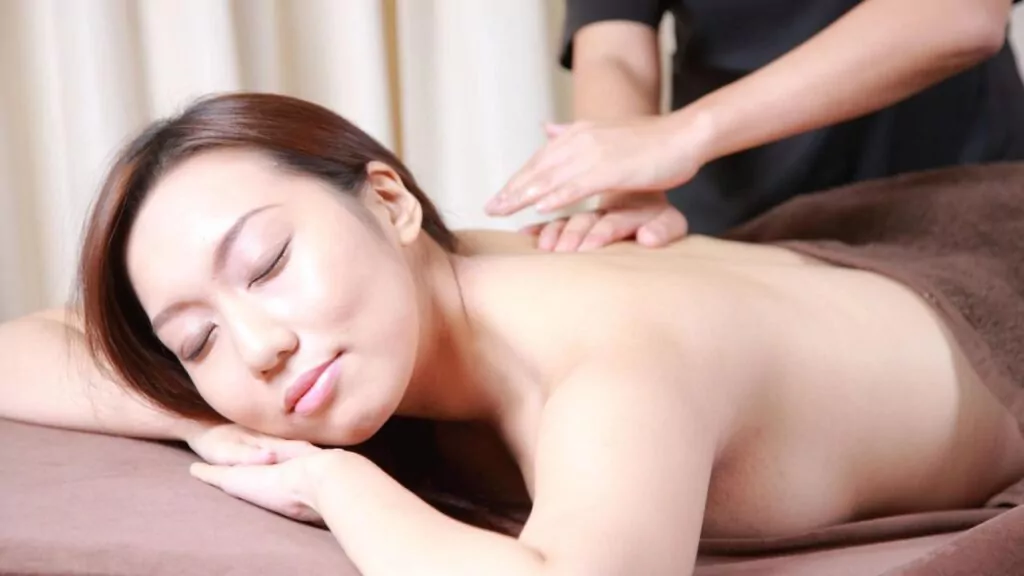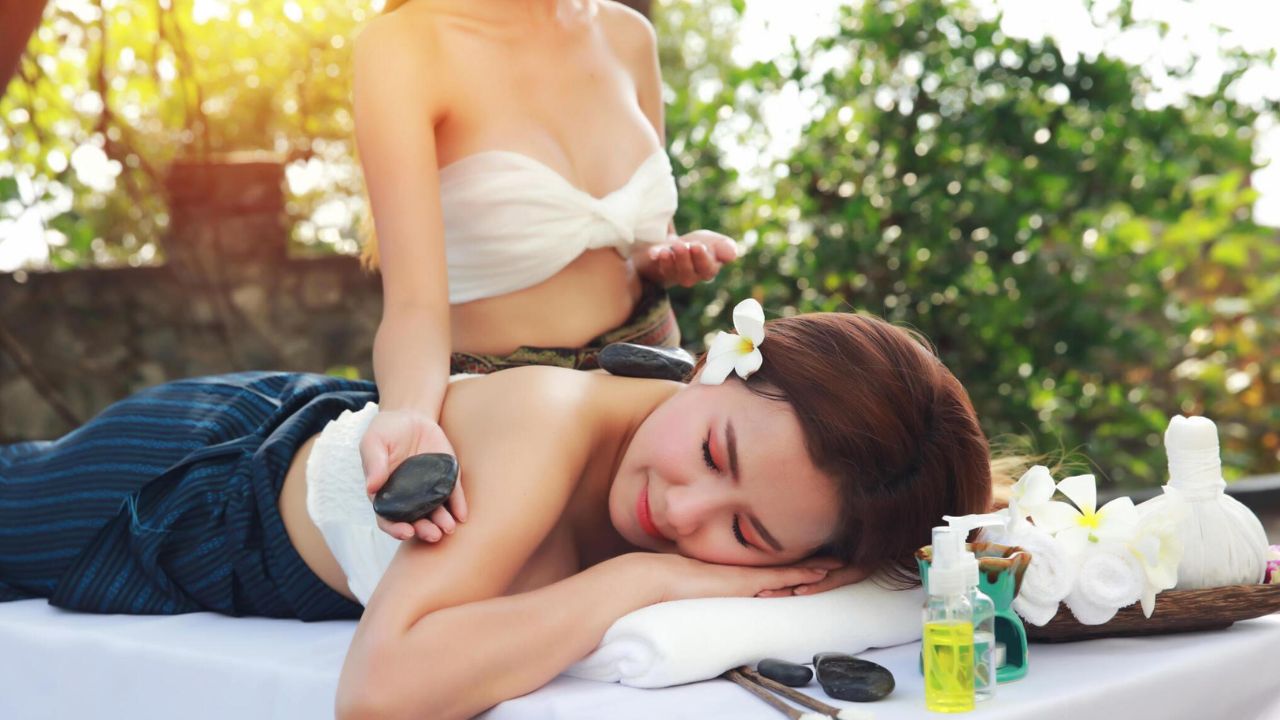Understanding the concept of an “Asian Happy Ending Massage” may intrigue you. There is a lot of curiosity and secrecy surrounding it. Are you familiar with the term? Traditionally, it refers to a service provided at some massage parlors where the massage ends with a sexual act. It’s important to stress that not all Asian massage parlors offer this type of service, and many legitimate establishments focus solely on therapeutic massage techniques.
The term has often been associated with the dark side of the wellness industry and has raised questions regarding legality and ethics. While some seek the experience as part of novelty tourism, others debate the moral implications involved. How do these parlors operate within the law, and what does it mean for those working there? These are crucial points to consider, as the conversation around these services is as complex as it is controversial.
Origins and History of Asian Massage

Asian massage encompasses a range of techniques with rich historical significance, originating from traditions that date back thousands of years. This section explores the traditional roots and how these practices have evolved.
Traditional Roots of Massage in Asia
The origins of Asian massage are deeply rooted in ancient medicinal practices. Historical documentation suggests that massage was already an established healing method over 2,500 years ago, particularly in India and China. It’s well known that Thai massage, for instance, draws from Ayurvedic traditions and was potentially developed by a contemporary of Buddha named Jivaka Kumar Bhaccha.
In Japan, the practice of anma, a traditional form of massage, predates many Western modalities. Anma was initially geared towards relaxation and medicinal use, laying the groundwork for what would evolve into well-recognized Japanese massage therapies like shiatsu.
Evolution of Massage Practices
Over time, Asian massage techniques have witnessed significant evolution, incorporating various elements from different cultures. Thai massage, for example, experienced updates and standardization in the 20th century, reflecting the balance between maintaining traditional approaches and adapting to contemporary therapeutic settings.
Japanese massage has also adapted, with shiatsu integrating Western anatomical and physiological knowledge. This demonstrates how traditional practices can evolve while still preserving their fundamental principles.
The inclusion of these practices in Western cultures has brought about a broader acceptance and integration into holistic health frameworks, highlighting the global appeal and relevance of Asian massage therapy.
Understanding the Term ‘Happy Ending’

When discussing massage services, “happy ending” signifies a sexual act performed at the conclusion of a massage. Grasping what this term entails and its associated implications is essential.
Definitions and Misconceptions
Happy ending: A term often used to discreetly offer or request a sexual service—typically a manual stimulation leading to orgasm—after a massage session. While the phrase “massage happy end” can imply a real experience of sexual release, it’s critical to note that not all massages are associated with this practice, and assuming so can lead to misunderstandings. Importantly:
- Legalities: The provision of a happy ending can fall under illegal activities, subject to local laws.
- Misconceptions: Regular therapeutic massages should not be confused with offerings of a “real happy ending.”.
Cultural Connotations and Controversy
The idea of a “happy ending massage” is often linked with Asian massage parlors due to broad stereotypes portrayed in media and popular culture. However, this association can unfairly stigmatize Asian massage practices that are legitimate and non-sexual in nature.
- Controversy: There’s debate surrounding the ethical implications and the perpetuation of a stereotype that can overshadow the professional and therapeutic aspects of massage.
- Cultural Impact: The label “happy ending Asian” is not only reductive but also promotes a biased viewpoint that may disrespect the rich history and therapeutic value of authentic Asian massage therapies.
Bear in mind that engaging in this type of service where it’s illegal can lead to legal consequences for both the customer and the service provider. When seeking a massage, it’s important to be clear about your intentions to ensure an appropriate, professional experience.
The Legal and Ethical Landscape

Exploring the regulatory frameworks and moral considerations, we uncover the complex environment surrounding Asian massage parlors. Here’s what you need to know.
Laws Governing Massage Parlors
Massage parlors, including those with an Asian focus, operate within a legal framework that varies by state and local jurisdiction in the United States. Fundamentally, all legitimate massage parlors must adhere to licensing regulations. To be compliant, massage therapists often require state certification, and the establishments themselves must follow strict health and safety codes.
Specifically regarding Asian massage parlors, there is no separate legal category, but they are often scrutinized due to a history of some parlors being fronts for illegal activities. In recent data:
- Massage parlor inspections are carried out to ensure compliance with the law.
- Links to criminal behavior such as prostitution and human trafficking have resulted in increased law enforcement attention.
In addition, laws transferred across state lines can affect how parlors are run. For instance, some states have data-sharing agreements that help track questionable businesses.
- Illegal activities: Any sexual services offered are against the law in the US. Entities prosecuted for such offenses face severe penalties.
Ethical Considerations
When discussing the ethics within the Asian massage parlor industry, it’s crucial to distinguish between consensual activity among adults and exploitative practices. Here’s a breakdown:
Exploitation and Human Trafficking:
- Widespread concern exists about human trafficking and exploitation in some massage parlors.
- Ethical practices demand transparency regarding the services offered and the welfare of the staff.
Consensual Activities:
- While some argue that activities between consenting adults should be permitted, current laws do not make such allowances, and ethical questions about commodification and power dynamics remain.
Considering the ethical landscape, you should be aware that supporting establishments involved in illegal or dubious practices can have broader social repercussions. It’s important to make informed choices that reflect not just personal values but also respect for the law and human rights.
Services Offered in Asian Massage Parlors

When you step into an Asian massage parlor, you’re entering a world of diverse and specialized massage offerings that cater to a wide range of preferences and needs.
Exploring the range of services
Asian massage parlors typically provide a menu of services that may include full-body massages, reflexology, and targeted treatments for stress relief and relaxation. Among these services, happy-ending massages hold notoriety. Although not part of the mainstream services advertised, such massages are known for their intimate and controversial nature, involving sexual services provided at the end of a massage session. It’s important for you to understand that these services are not legal in many jurisdictions, and legitimate establishments often do not offer them.
Specialized massage techniques
When considering a full-body massage, you might encounter a variety of specialized techniques, such as:
- Shiatsu: A Japanese technique involving pressure applied with thumbs, fingers, and palms to specific points on the body.
- Swedish: known for long, flowing strokes, kneading, and circular movements on superficial layers of muscle.
- Thai Massage: It involves stretching and deep massage; you typically remain fully clothed during the session.
The choice of massage can serve different health and wellness goals, from deep relaxation to aiding in muscle recovery. Always ensure that the services you seek align with your expectations and are in accordance with local laws and regulations.
Personal Experiences and Testimonials

Exploring the realm of massages that include a ‘happy ending’ can be a delicate topic, but understanding it through personal accounts provides invaluable insights. These experiences highlight the consumer perspective and impart an authentic view of the controversial subject.
First-Hand Accounts
Users openly share their experiences on various forums and discussion boards. Here, you have the real stories of individuals who sought a massage with a happy ending, detailing the environment and the practitioner’s approach. These narratives often emphasize the importance of mutual respect and consent in the experience, which seems pivotal for satisfaction.
- Location: While some users have reported unsuccessful attempts in their local areas, others recount finding success while traveling, particularly in regions where such activities are less regulated.
- Cost: A typical happy ending massage is detailed to range in cost, but affordable pricing is frequently mentioned, often in locations where such practices are a cultural norm.
Consumer Insights
Consumer insights shed light on the nuanced psychology behind seeking such massages. There’s a recurring mention of the activity beyond its base label as a ‘happy ending’—it’s often part of a broader search for relaxation or a novel experience.
- Experience Quality: For many, it’s not solely about the real happy ending; rather, it’s about the quality of the overall massage and the sense of connection with the masseuse, implying a desire for a positive experience for all parties involved.
- Support: An intriguing aspect brought to the table is the role of happy ending massages in supporting certain causes or communities, such as establishments employing the visually impaired, which provides a different perspective on the practice.
By examining these personal experiences and testimonials, you gain a deeper understanding of the multitude of factors that come into play—not just the act itself, but the interpersonal dynamics and the context in which it occurs.
Decoding the Ambiance and Environment

When you walk into an Asian massage parlor, the ambiance and environment can vary greatly. This section uncovers what the surroundings may entail and hints at the level of privacy you can expect.
Atmosphere and Decor
In an Asian massage parlor, you’ll often find a unique blend of cultural decor and soothing aesthetics designed to provide a calm and relaxing experience. You may notice:
- Traditional Asian accents: bamboo plants, calming Zen music, and artwork reflecting Asian heritage.
- Soft lighting: dimmed to create a tranquil and intimate setting.
- Comfortable furnishings include plush chairs and clean, orderly massage stations.
These elements aim to establish a serene environment conducive to relaxation and stress relief.
Privacy and discretion
The aspect of privacy is crucial in Asian massage parlors for maintaining discretion. Here’s what you might observe:
- Private Massage Rooms: Individual rooms or curtained-off areas for personal space.
- Soundproofing: efforts to prevent conversations or noises from traveling.
- Discreet Entry/Exit: Some parlors have back door access to keep visits confidential.
Noticing these details can inform you about the parlor’s commitment to client privacy and the type of experience you should expect.
Professionalism and Training

In exploring the realms of full-body massages, particularly those associated with Asian practices, it is essential to understand the professionalism and training behind the services provided by practitioners. Here we’ll examine the qualifications required to deliver these services and the standards that govern their practice.
Qualifications of Practitioners
When you seek a real Asian massage, the qualifications of practitioners should be a top concern. Certification is a basic requirement, usually after completing an accredited training program that includes both theoretical and practical components. Proper training ensures practitioners are skilled in various techniques suitable for a full-body massage. The curriculum typically covers anatomy, physiology, and hands-on techniques, which are imperative for working in professional massage rooms.
Licensing is another aspect you should look into. Depending on the location, practitioners might be required to pass state or national exams to obtain a license to operate legally. Always verify that the massage therapist has their credentials appropriately displayed in the massage rooms or can provide them upon request.
Standards of Practice
When it comes to standards of practice, there is much to consider. Reputable massage therapists adhere to a code of conduct, which includes maintaining client confidentiality, providing a clean and safe environment in massage rooms, and always obtaining informed consent before proceeding with any type of full-body massage.
Ethics are paramount in ensuring that both you and the practitioner respect each other’s boundaries. Any service described as a ‘happy ending massage’ is outside the bounds of professional standards and is not part of a legitimate therapeutic treatment. It’s crucial for you to know that professional and ethical practitioners focus on health benefits and wellness rather than other services that may be suggested or implied by the term ‘happy ending.’
In light of these points, always ensure that the services you opt for are offered by licensed practitioners who strictly follow professional standards. This ensures your safety, the quality of the massage, and the integrity of the qualifications of the practitioners.
Health Benefits and Risks

Exploring the health benefits and risks associated with Asian Happy Ending Massage sheds light on both its therapeutic effects and potential health concerns.
Therapeutic Effects of Massage
The allure of a full-body massage lies in its diverse therapeutic benefits. Your experience may include deep relaxation, decreased stress levels, and a sense of rejuvenation. Prominent advantages often reported are:
- Stress Reduction: Methodical massage techniques are known to induce a calming effect, lowering cortisol levels and boosting your mood.
- Muscle Tension Relief: Targeted strokes and pressure help alleviate muscle pain and enhance flexibility.
Potential health concerns
An informed decision about a happy ending massage requires awareness of potential health concerns. Here’s what you should consider:
- Boundaries and Consent: Understand what the service entails and ensure mutual consent for any sexual component, such as a handjob, which is commonly referred to as “Happy Ending.”
- Data Privacy: Personal information may be at risk if proper privacy policies are not in place. Always be conscious of what data you share and with whom.
By weighing the therapeutic outcomes against the relevant health risks, you can derive the most benefit from your full-body massage experience, keeping safety and personal comfort at the forefront.
Navigating Legalities and Customer Rights

In this section, we will explore the critical legal considerations and your entitlements when frequenting massage parlors, including those offering massages with a so-called “happy ending.”.
Consumer protection laws
Understanding Local Regulations: It’s essential to know that the legality of massage parlors, especially those providing massages with happy endings, varies locally. In the United States, most states have strict laws regulating massage therapy, and any sexual conduct in these establishments is typically illegal. Consumer protection laws are in place to prevent deceptive practices; therefore, legitimate massage businesses will display services and prices clearly. Museums with offerings outside the legal framework may not only be shut down, but attending them could expose you to legal risks.
Updates on Legal Status: Stay informed on recent updates regarding legislation. Checking online resources or consulting with a legal expert can clarify the current stance your local authorities have on such establishments. With this ever-evolving landscape, ensure your information is from credible sources to avoid misconstruing satire as fact.
Rights and responsibilities
Your Rights: As a consumer, you have the right to receive the advertised service, clarity on the pricing, and treatment in a facility that complies with health and safety standards. Should you have a disability, the massage parlor is required by law to provide accessible services under the Americans with Disabilities Act (ADA).
Your Responsibilities: It’s your responsibility to respect the law, including local ordinances concerning massage practices. Exercise due diligence in confirming the legal status of the services provided. Not only does this protect you from participating in illegal activities, but it also ensures your actions do not inadvertently support exploitation or trafficking, which can be a dark underside of this industry.
Marketing Strategies for Massage Businesses

To thrive in the competitive massage industry, strategic marketing is crucial. It’s essential to master an online presence and cultivate customer loyalty to stand out.
Online presence and SEO
Your website is your digital storefront. Make sure it’s user-friendly, with a clean design that reflects the serenity of an Asian massage experience. Use SEO (Search Engine Optimization) best practices to increase your visibility on search engines. Incorporate relevant keywords, add quality links, and regularly update your site with fresh content to improve rankings and drive engagement.
- Keywords: Integrate terms like “Asian massage,” “relaxation,” and “therapeutic massage” naturally into your webpages.
- Links: Establish connections with related businesses and directories to create a network of credible backlinks.
- Content: Share informative articles or blog posts that position you as a knowledgeable authority in massage therapy.
Consider this: Are your services easy to find online? A robust SEO strategy makes you visible to those looking for massage services on their computers or mobile devices.
Customer Loyalty Programs
Create customer loyalty programs to encourage repeat visits and referrals. Offer membership packages or reward points for each session your clients book. Tailor discounts to frequent visitors to show appreciation for their continued activity and support.
Examples of rewards
- Points: Clients earn points per visit, redeemable for free massages or exclusive services.
- Membership: special pricing and benefits for members, like priority booking or a free massage on birthdays.
Remember, loyal customers are your best ambassadors. Engaging reward systems can turn one-time visitors into lifelong clients. Have you considered how a loyalty program could benefit both your massage business and your clientele?
Future Outlook

In this section, you’ll discover how the landscape of the “Asian Happy Ending Massage” industry is expected to change, including future trends and technological advancements.
Industry Trends and Predictions
The clandestine nature of the Asian Happy Ending Massage industry often evades precise data collection. However, legislation and regulation appear to be at the forefront of the impending industry evolution. With a global push for human rights and anti-trafficking measures, we can anticipate stricter enforcement of existing laws and the introduction of new policies aimed at safeguarding workers and cracking down on illegal activities.
In terms of economic forecasts, consumer demand may sway the industry toward legitimate spa services. As for illicit services, expect undercover operations and legal actions to increase. This shift will likely result in a decline in the number of establishments offering illegal services.
Technological Innovations
Technological advancements are poised to transform the Asian massage industry. With the integration of online booking systems, anonymity is being compromised, which may deter illegal activity. Furthermore, advancements in digital payment platforms could make transactions easier to trace, an advantage for law enforcement agencies tracking illicit transactions.
In terms of customer service, technology may enhance the massage experience through innovative tools and techniques, raising standards and possibly the cost for legitimate service providers. Expect to see smart massage equipment that tailors the experience to individual preferences while maintaining data privacy.
As technologies evolve, keep an eye on updates to security measures to ensure both client and worker protection. These innovations will shape the industry’s ability to operate lawfully, effectively deterring criminal activity.




















